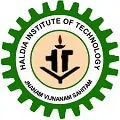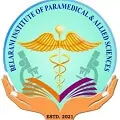Curriculum:
- The B.Sc. in Perfusion Technology curriculum covers subjects like Human Anatomy and Physiology, Pathophysiology, Cardiovascular Perfusion, Pharmacology, Surgical Procedures, Extracorporeal Circulation, and Advanced Perfusion Techniques. This comprehensive curriculum prepares students for the technical and clinical responsibilities of managing heart lung machines and other cardiopulmonary support equipment during surgeries.
Internship/Practical Training:
- Practical training is crucial in Perfusion Technology. Students undergo rigorous clinical training in hospitals and cardiac care centers, gaining hands-on experience with cardiopulmonary bypass machines and other essential equipment. Training includes observing and assisting in various surgical procedures.
Job Prospects:
- Graduates in Perfusion Technology have promising job prospects in hospitals, cardiac care units, ICUs, surgical centers, and research organizations. As healthcare facilities increasingly require specialized support for cardiac surgeries, skilled perfusionists are in high demand across India and internationally.
Salary Range:
- Entry level salary for Perfusion Technology graduates typically range from INR 3 lakh to 6 lakh per annum, depending on the organization and location. Experienced professionals and those in high-demand specialties, like ECMO, can earn higher salaries.
Further Studies:
- After completing B.Sc. in Perfusion Technology, graduates can pursue M.Sc. in Perfusion Technology or other advanced medical certifications. Additional certifications in Cardiac Perfusion, Neuroperfusion, or ECMO enhance expertise and open up opportunities in specialized clinical roles or medical research.












